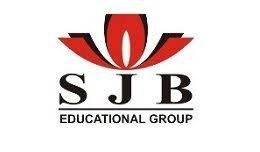Discover rewarding career prospects in Banking & Finance with a B.Com degree. Explore job opportunities in this dynamic field
Career & Job Opportunities for B.com in Banking Finance course
A Bachelor of Commerce (B.Com) degree in Banking and Finance is a specialized undergraduate program that prepares students for careers in the financial services industry. This program equips students with a strong foundation in finance, banking, accounting, and economics, enabling them to pursue various job opportunities in the financial sector. Here are some details about the career and job opportunities available to graduates with a B.Com in Banking and Finance:
Course Curriculum:
The curriculum for a B.Com in Banking and Finance typically includes subjects such as:
-
Financial Accounting: This covers the fundamentals of accounting principles, financial statements, and financial reporting.
-
Banking and Financial Institutions: Students learn about the operations, functions, and regulations governing banks and financial institutions.
-
Corporate Finance: Topics include financial management, investment analysis, and capital budgeting.
-
Economics: Students study microeconomics and macroeconomics, gaining insights into economic theories and their practical applications.
-
Risk Management: Understanding and managing various types of financial risks, such as credit risk and market risk, is a crucial aspect of this program.
-
Investment Analysis: This course focuses on investment strategies, portfolio management, and financial markets.
-
Financial Regulations: Students learn about the regulatory framework that governs the financial industry, including securities laws and banking regulations.
B.com in Banking Finance Career Opportunities:
Graduates with a B.Com in Banking and Finance can pursue a wide range of career opportunities in the financial services sector, including:
-
Banking: They can work in commercial banks, investment banks, or retail banks in roles such as bank tellers, loan officers, financial analysts, or branch managers.
-
Insurance: Opportunities exist in insurance companies as underwriters, claims adjusters, or risk analysts.
-
Investment Banking: Graduates can work in investment banking firms as analysts, associates, or in roles related to mergers and acquisitions.
-
Asset Management: They can join asset management companies as portfolio managers, investment analysts, or financial planners.
-
Financial Planning: Graduates can become financial advisors or planners, helping individuals and businesses with financial planning and investment strategies.
-
Stock Broking and Trading: Careers as stockbrokers, traders, or equity analysts are also possible.
-
Corporate Finance: Working in finance departments of corporations, graduates can be involved in financial planning, budgeting, and treasury management.
-
Financial Consulting: They can work as financial consultants for firms that offer advisory services to businesses and individuals.
-
Auditing: Graduates can become auditors, examining financial statements and ensuring compliance with accounting standards.
-
Government and Regulatory Bodies: There are opportunities to work in government agencies and regulatory bodies responsible for overseeing financial markets and institutions.
B.com in Banking Finance Job Growth and Salary:
The job outlook for individuals with a B.Com in Banking and Finance is generally positive, as the financial sector continues to evolve and expand. Salaries can vary significantly based on the specific role, location, and level of experience. Entry-level positions may have lower salaries, but with experience and professional certifications, such as the Chartered Financial Analyst (CFA) or Certified Public Accountant (CPA), individuals can command higher salaries and advance in their careers.
Overall, a B.Com in Banking and Finance provides a strong foundation for a rewarding career in the financial services industry, offering a wide range of job opportunities in various sectors and roles.
 3 Years
3 Years
 Under Graduate
Under Graduate
 Commerce
Commerce
 Full Time
Full Time





















 back
back

